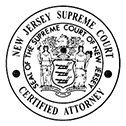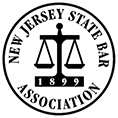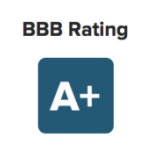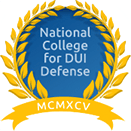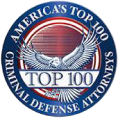Linden NJ Theft Offense Defense Attorney
The catchall theft offense set forth in the New Jersey Criminal Code is referred to as theft by unlawful taking. This is the general theft statute that applies when an incident of alleged stealing falls outside a specific law like shoplifting, theft by deception or theft of services. If you were charged with theft under N.J.S.A. 2C:20-3, the lawyers at The Law Offices of Jonathan F. Marshall are highly capable of defending your case. Our attorneys include several former prosecutors that make up a defense team with over a century of experience serving Linden, Union Township, Rahway, Elizabeth, Westfield and other venues in Union County. Whether you are facing a high exposure second degree crime for theft or a disorderly persons offense in municipal court, you can find a qualified attorney to serve you on our staff. To speak to a lawyer immediately in a free consultation, contact our Union NJ Office at 908-272-1700. Your initial consultation is free of charge.
Charged With Theft by Unlawful Taking in Union County NJ
As previously stated, theft by unlawful taking is set forth at N.J.S.A. 2C:20-3. This offense is committed if someone “unlawfully takes, or exercises unlawful control over, movable property of another with purpose to deprive him thereof”. An individual is also exposed to this charge if he/she “unlawfully transfers any interest in immovable property of another with purpose to benefit himself or another not entitled thereto.” It is the unlawful taking or unlawful exercise of control which is the act that makes the conduct criminal.
Elements of Offense. To prove a case of unlawful taking of movable property, the State must prove five elements. First, it must be proved that it is movable property. Second, it must be the movable property of another. Third, it must be proved that the defendant took, disposed of or exercised control over the property. Fourth, it must be unlawful. Fifth, it must have been taken with a purpose to deprive the other person who had an interest in the property. For immovable property, there are four material elements. First, the state must prove an unlawful transfer. Second, there must be a transfer of an interest in immovable property. Third, it must be the immovable property of another. Fourth, the defendant must have acted with the purpose of benefiting himself or another person who was not entitled to that interest.
Grading of Offense. A theft by unlawful taking offense can come in the form of just about every criminal grade set forth by law except a first degree crime. A theft of money or property with a value of less than $200 results in a disorderly persons offense which is resolved in the municipal court of the town where the incident occurred. It is a fourth degree crime to steal property with a value of at least $200 but less than $500. When the theft is something with a value of at least $500 but less than $75,000, a violation of 2C:20-3 is a third degree crime. Thefts involving items with a value of more than $75,000 result in a second degree crime.
Penalties. Second degree theft carries a state prison term of 5-10 years and a maximum fine of $150,000. A conviction for third degree theft results in up to 5 years of incarceration and a fine that can reach $15,000. Fourth degree theft by unlawful taking triggers a jail/prison sentence of up to 18 months and a potential fine of $10,000. The county jail term is up to 6 months and the fine is up to $1,000 for a disorderly persons offense for theft.
Scotch Plains NJ Theft Lawyers
Theft is an offense that can occur anywhere so higher rent districts of Union County like Scotch Plains, Cranford, Berkeley Heights, Summit and New Providence are not immune from this charge. Whether you were arrested for theft by unlawful taking in these or another municipality, the penalties can be severe if you are convicted. This is a primary reason for you doing your best to hire an attorney who can help you avert a plea or finding of guilt. The lawyers on the defense team at the Law Offices of Jonathan F. Marshall clearly possess these attributes with over 100 years of experience representing clients charge with theft related violations. To speak to one of the lawyers on our staff immediately, call 908-272-1700. Attorneys are available 24/7 to help you and initial consultations are free.


